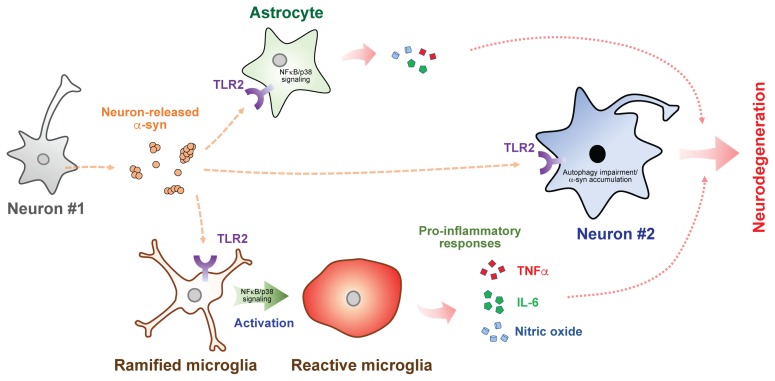Fig. 1.
Model of pathological TLR2 activation by neuron-released α-synuclein in neurons, astrocytes, and microglia. Under disease conditions, neurons release pathogenic α-syn into the extracellular space where they can interact with TLR2 on neighboring cells. In microglia and astrocytes, α-syn activates a TLR2 signaling cascade that induces a pro-inflammatory response, thereby generating a neurotoxic environment. α-syn can also interact with neuronal TLR2 to induce neurotoxic α-syn deposition by impairing autophagy. As such, TLR2 immunotherapy is a promising therapeutic strategy to prevent α-syn-mediated glial activation and cell-to-cell transmission of α-syn aggregates, ultimately ameliorating neurotoxic conditions in the synucleinopathy brain.

